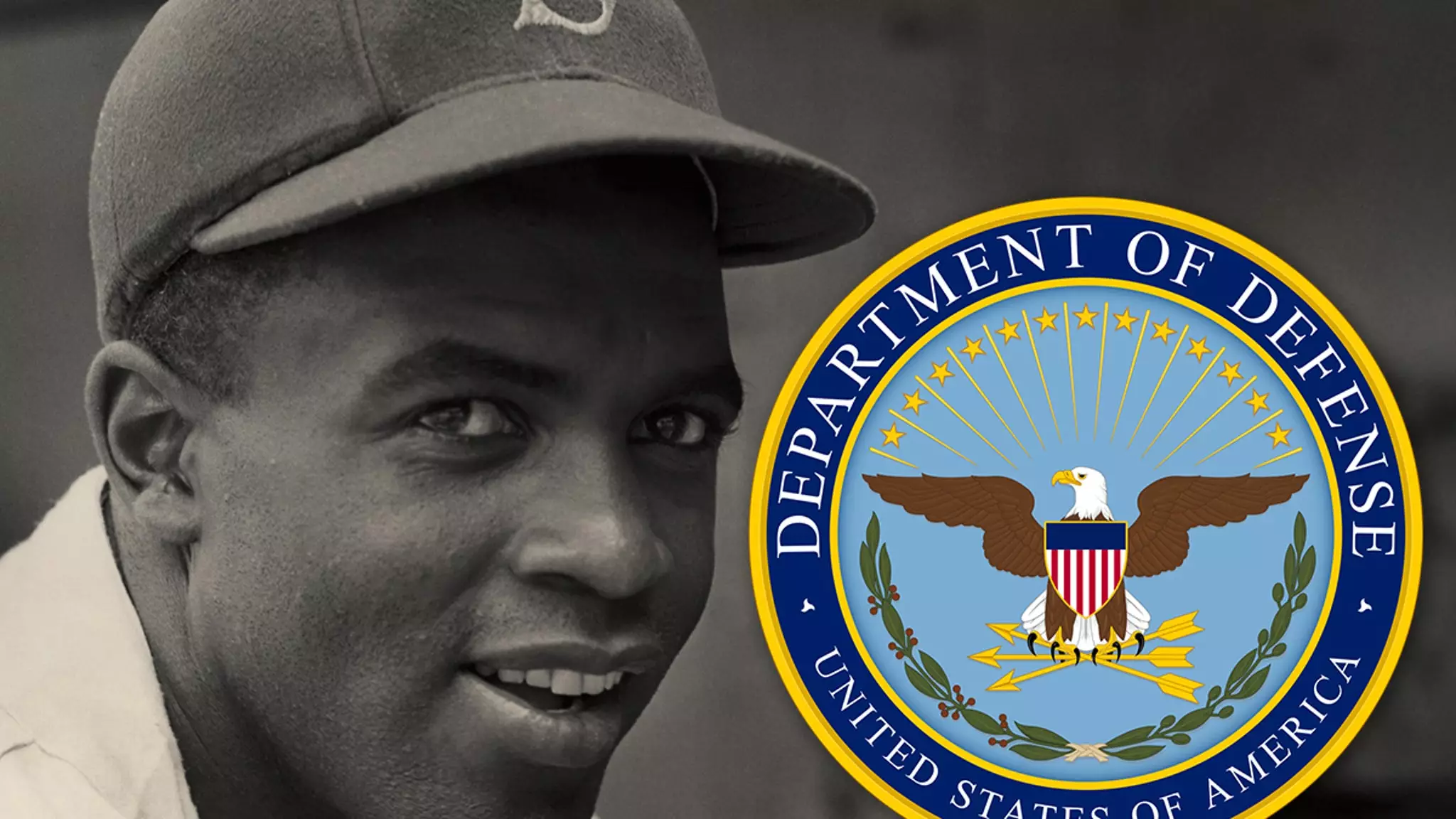The recent fiasco surrounding the removal and subsequent reinstatement of a story on Jackie Robinson’s military service from the Department of Defense website serves as a stark reminder of the ongoing struggle for inclusiveness within the annals of American history. Robinson, a groundbreaking figure who defied societal norms and prejudice in both sports and military service, deserves recognition that transcends the confines of narratives influenced by current political climates. The original removal of the story raised eyebrows and ignited a firestorm of discontent from advocates of diversity. It underscores the complexity of how historical figures are treated in contemporary discourse.
Understanding the Underlying Issues
The incident highlights a larger ideological battle within governmental frameworks concerning Diversity, Equity, and Inclusion (DEI). The seemingly erratic removal of Robinson’s story was predicated on a misguided directive to eliminate what some might label ‘woke’ content from government narratives. Yet, Jackie’s legacy is not merely a component of DEI; it epitomizes the very essence of American values—grit, determination, and an unwavering quest for justice. The push among certain factions to sanitize or overlook aspects of history that reflect diverse perspectives is detrimental not only to educational discourse but also to the collective memory of our nation.
The Importance of Commemoration
The excitement surrounding the reinstatement of Robinson’s story reflects a wider public desire to honor the full spectrum of American history. His draft into the military in 1942 and subsequent service with the 761st “Black Panthers” tank battalion is a testament to his character, bravery, and integrity—qualities that should be cherished rather than erased. Despite the controversies that swirl around current military policies, the Defense Department must take lessons from this situation and re-evaluate how it commemorates individuals like Robinson, ensuring that they are celebrated for their multifaceted contributions.
Implications for Future Generations
The resurgence of Robinson’s narrative serves as an urgent call to educators, policymakers, and society as a whole to foster an open dialogue about the significance of representation in history. Children and young adults should be taught not just about the accolades of sports legends but also about their sacrifices and contributions beyond the ballpark. This holistic approach will ensure that future generations understand the full breadth of a person’s impact on society.
Legacy Beyond Politics
In the midst of political machinations, it is crucial to recognize the intention behind commemorations, such as the planned Jackie Robinson statue in the National Garden of American Heroes. Understanding Robinson’s legacy as one that transcends political contexts reaffirms the notion that true patriotism lies in appreciating the sacrifices made by diverse groups of individuals for the greater good. As we push for a more inclusive narrative, we must remember that honoring figures like Jackie Robinson enriches our national identity and fosters unity rather than division. It is not merely about adhering to ideologies but about celebrating the countless stories that weave the fabric of our nation.

